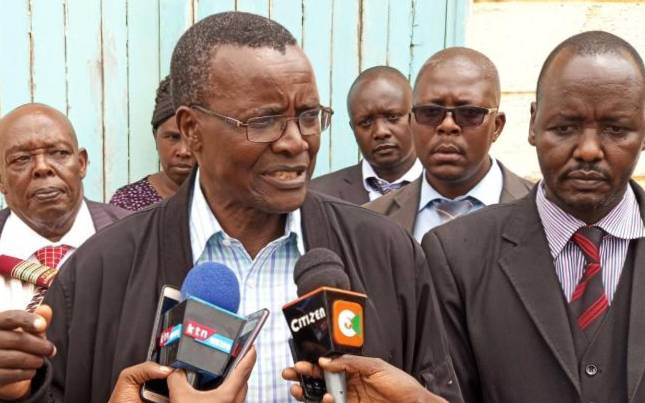×
The Standard e-Paper
Join Thousands Daily

Chief Justice David Maraga when he addressed to journalists after inspecting the construction of Samburu Law Court in Maralal on April 23,2019. He has lashed at Executive and Legislature for failing the country. [File, Standard]
In a stinging rebuke of Kenyan leadership, Chief Justice David Maraga labelled leaders from the Executive and Legislative arms as self-absorbed and self-centred.